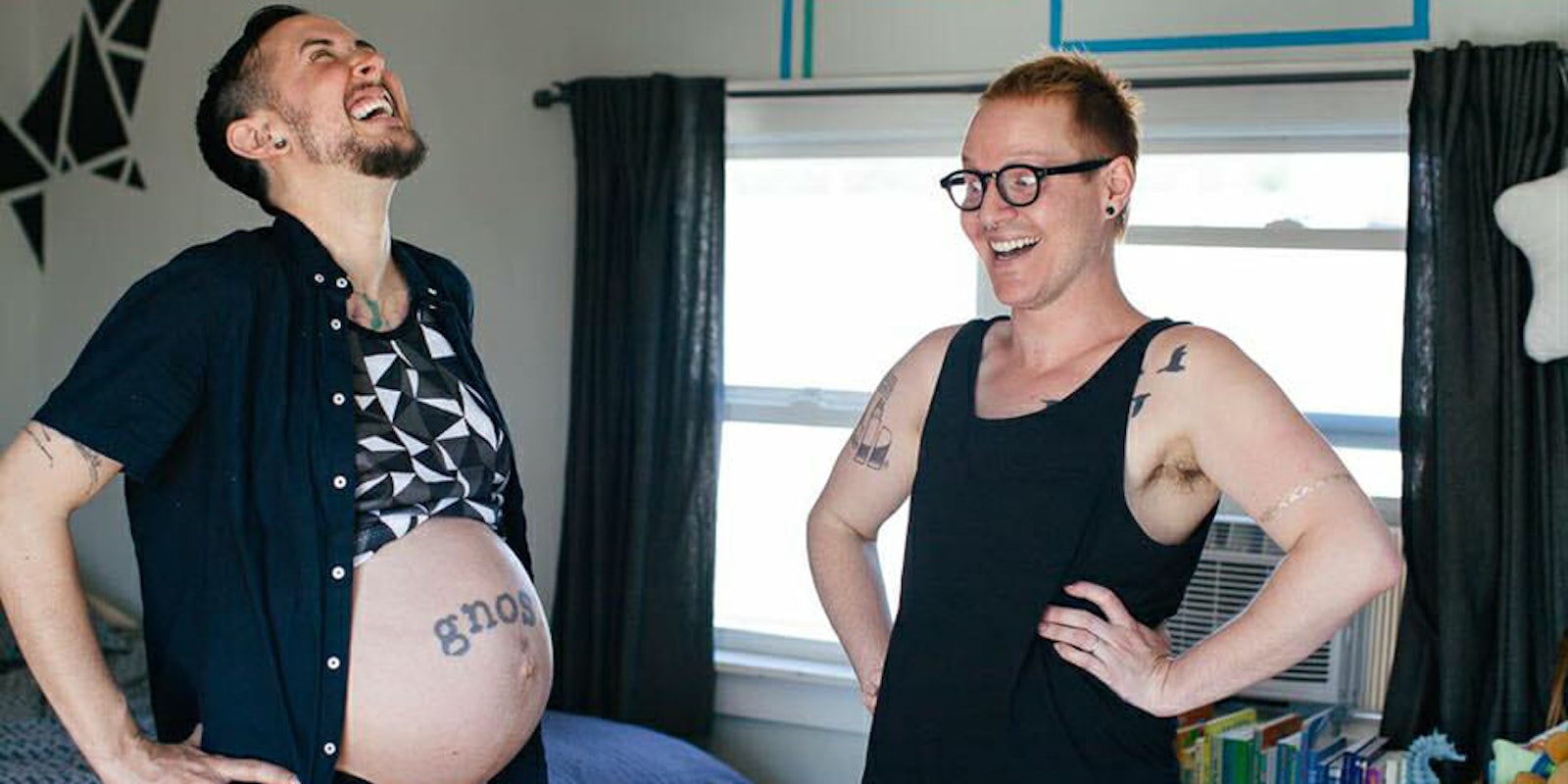Transgender man Trystan Reese and his husband Biff Chaplow live in Portland, Oregon. They have three children, including a newborn son—who Reese carried to term.
Though Reese, 34, began hormone replacement therapy about 10 years ago, the couple decided to try for a baby last year. He became pregnant but unfortunately miscarried at six weeks.
The couple planned to wait another year to try again. But Reese learned that there might be complications with restarting and stopping testosterone, so the couple decided to take another shot at having a child sooner rather than later.
Six months after the couple began trying for a baby again, Reese found out he was pregnant with Leo.
“The moment he was born was just like a pure moment of bliss, like the happiest moment of my life,” Chaplow told Fox 19. “Just to see the very beginning of Leo, of his life, was just amazing.”
https://www.facebook.com/biffandi/photos/a.966577460108136.1073741828.933404363425446/1356240451141833/?type=3&theater
Reese has since spoken out about his story as a transgender father, and how the outside world views his body. Reese was nervous going for his six-week ultrasound at an OB/GYN, for instance, but found that the office’s fellow patients “wouldn’t even bat an eye that there was a dude with a beard claiming to be pregnant who is here to get bloodwork done.” He says that “doesn’t come magically,” and that he hasn’t faced “an ounce of transphobia” throughout his journey.
“I think my body is awesome. I feel like it’s a gift to have been born with the body that I did, and I made the necessary changes so that I could keep living in it, both through hormones and through other body modifications,” Reese wrote in a Facebook post, according to the Daily Mail.
Going forward, Reese wonders if the stigma against transgender pregnancies will lessen as society begins to accept trans people’s gender identity. He hopes other trans men who want to become pregnant will build a healthy relationship with their body that allows them to become fathers.
“Most trans men don’t have the relationships with their body that would allow them to engage in something that still feels so rooted in femininity. It’s something that their mothers did, their sisters did,” Reese said, according to the Daily Mail. “I hope that some of that is social, that it isn’t an inherent part of being transgender. I hope more people will get to the place that I’ve gotten to from the support of the people around me.”


